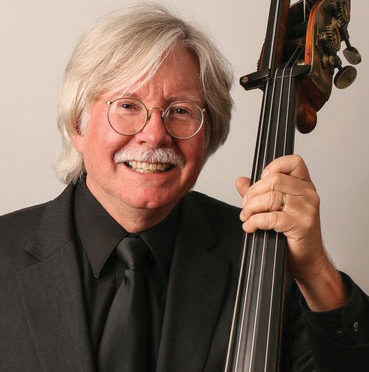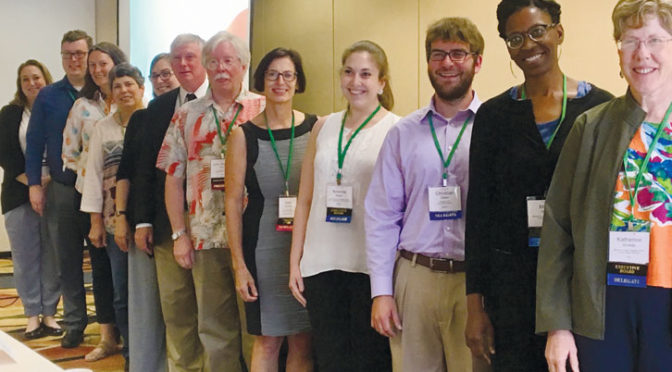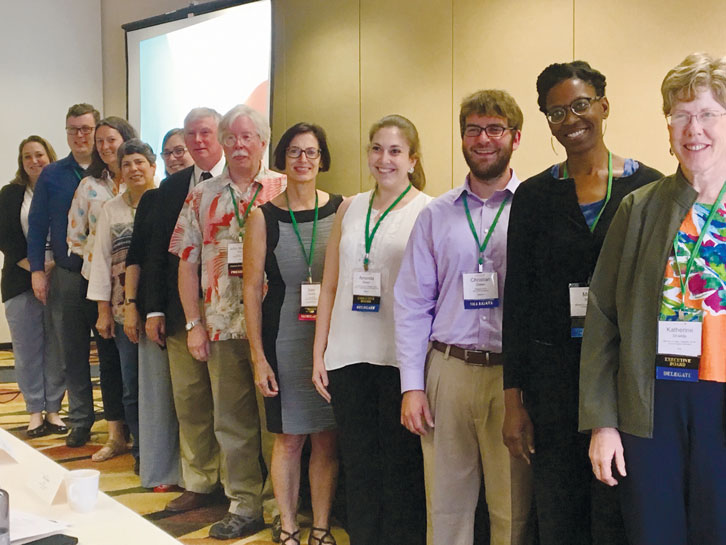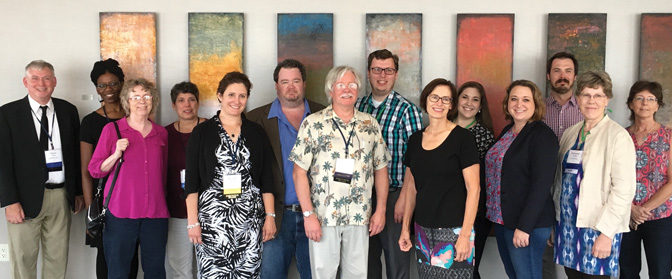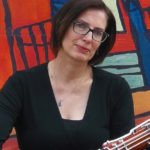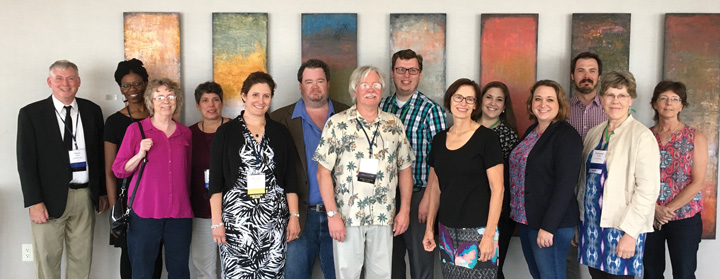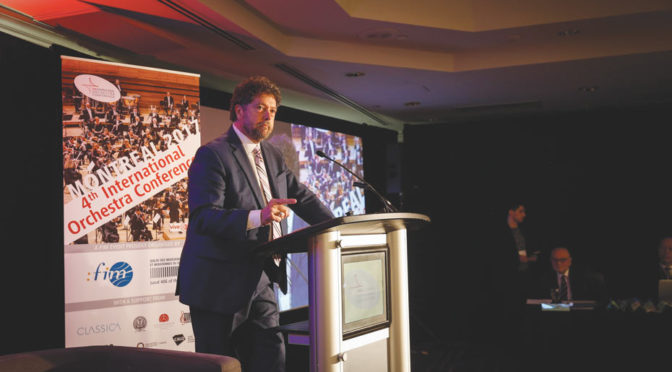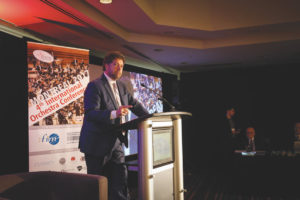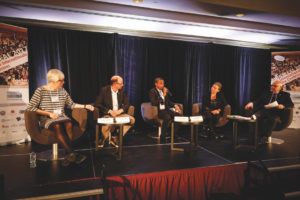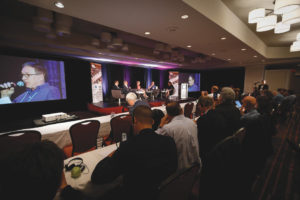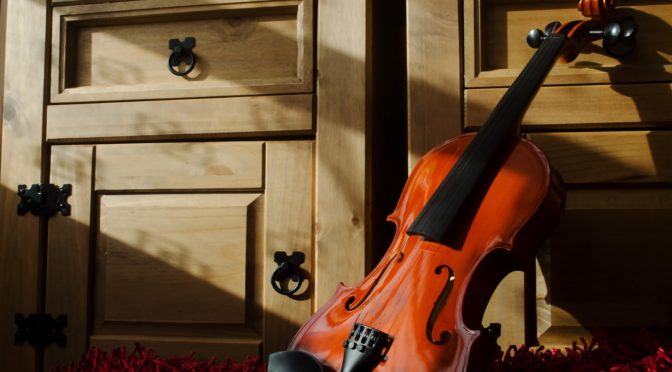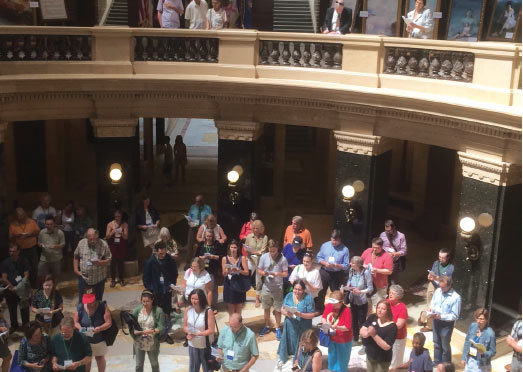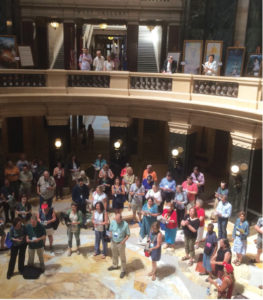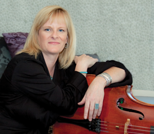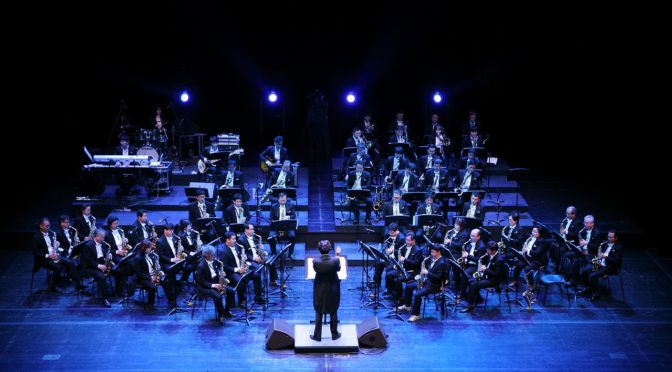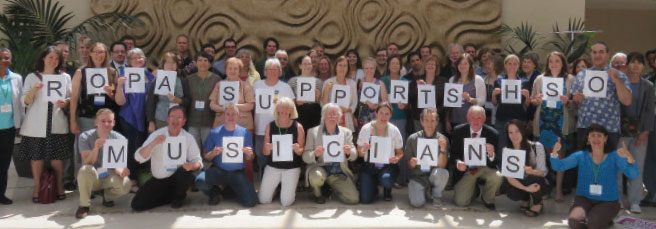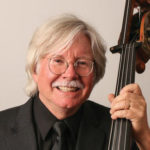
by John Michael Smith, ROPA President and Member of Local 30-73 (St. Paul-Minneapolis, MN)
These past few months have been very busy with travel and Regional Orchestra Players Association (ROPA) business, in addition to my gigs, family life, and a real Minnesota winter! I was able to visit the SphinxConnect Conference for only a day. The conference was held in Detroit January 30 – February 2. I joined my fellow ROPA Executive Board member Stephen Wade of Local 400 (Hartford-New Haven, CT), who attended the entire conference representing ROPA. I just missed Local 80 (Chattanooga, TN) and 257 (Nashville, TN) member Maya Stone, who is also a ROPA Executive Board member. She performed in the Sphinx Symphony Orchestra on Saturday evening.
Also in attendance were my colleagues International Conference of Symphony and Opera Musicians (ICSOM) Chair Meredith Snow, AFM Symphonic Services Division (SSD) Director and Special Counsel Rochelle Skolnick, and AFM Legislative-Political and Diversity Director Alfonso Pollard. It was my first experience at SphinxConnect, the annual conference of the Sphinx Organization. I was truly impressed with the quality of the event, the fabulous attendance of more than 800, and the positive energy. I encourage our AFM membership to support the excellent work that the Sphinx Organization is doing in the areas of equity, diversity, and inclusiveness, as well as addressing the under-representation of people of color in classical music.
Soon after returning home from SphinxConnect, Skolnick, Pollard, Snow, and I participated in a conference call with the leadership of the National Alliance for Audition Support (NAAS). This initiative is made up of leaders of the Sphinx Organization, the New World Symphony, and the League of American Orchestras. It is supported by a four-year $1.8 million grant from the Andrew W. Mellon Foundation and additional contributions from many partnering American orchestras. NAAS provides support to black and Latinx musicians to develop their audition skills and increase their participation in auditions, with the ultimate goal of increasing their representation in professional orchestras.
For several years, SSD, ICSOM, ROPA, and Local 655 (Miami, FL) representatives have participated in an educational and organizing visit with the fellows of the New World Symphony in Miami Beach. For this year’s February 12 visit, I was joined by Skolnick, AFM Director of Symphonic Electronic Media Deborah Newmark, Local 655 President Chas Reskin, ICSOM Chair Meredith Snow, and ROPA Executive Board member and South Florida musician Kendra Hawley. We engaged the aspiring future professional musicians in discussions about the AFM and the role that it will likely play in their future employment. At these visits, our AFM contingent discusses union and AFM history, the role of the player conferences, orchestra committees, the local, and working conditions of symphony, opera, and ballet orchestras. We talk about how an orchestra committee works and its relationship with the local. We discuss collective bargaining and the security, strength, and fairness that comes with standing together.
The 36th ROPA Conference will be held this summer in Boston, Massachusetts, July 28-30. There will be a negotiations workshop Saturday, July 27, for orchestras negotiating new CBAs in the current and coming year. The conference will be held in the Hilton Boston Logan Airport hotel, across the harbor from downtown Boston. Our hosts this summer are Local 9-535 (Boston, MA) and the ROPA orchestras of that local—Boston Ballet Orchestra, new member Cape Symphony, and Portland Symphony Orchestra. There will be a number of guest speakers and presentations, including those of AFM SSD. We look forward to this great annual event and Boston hospitality!


